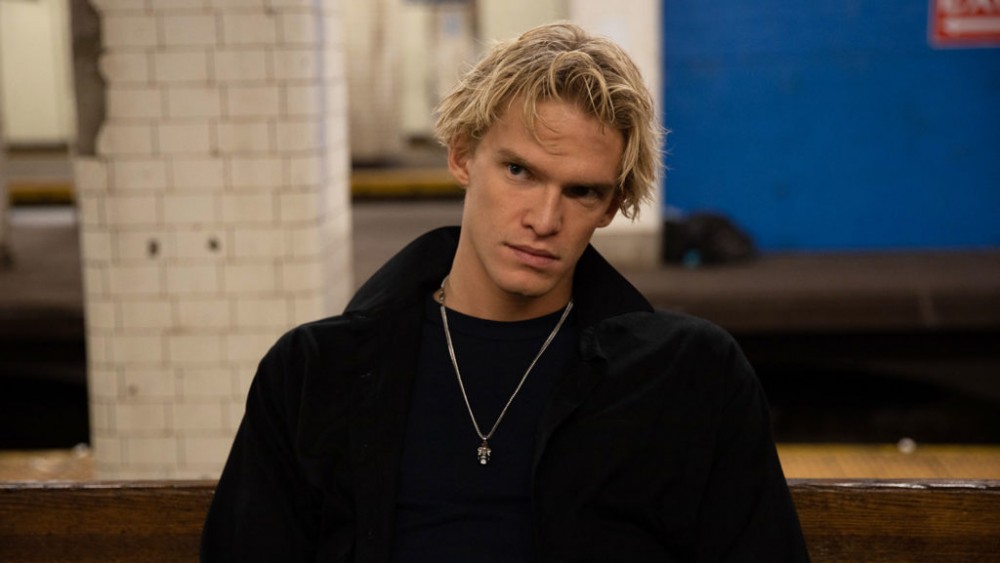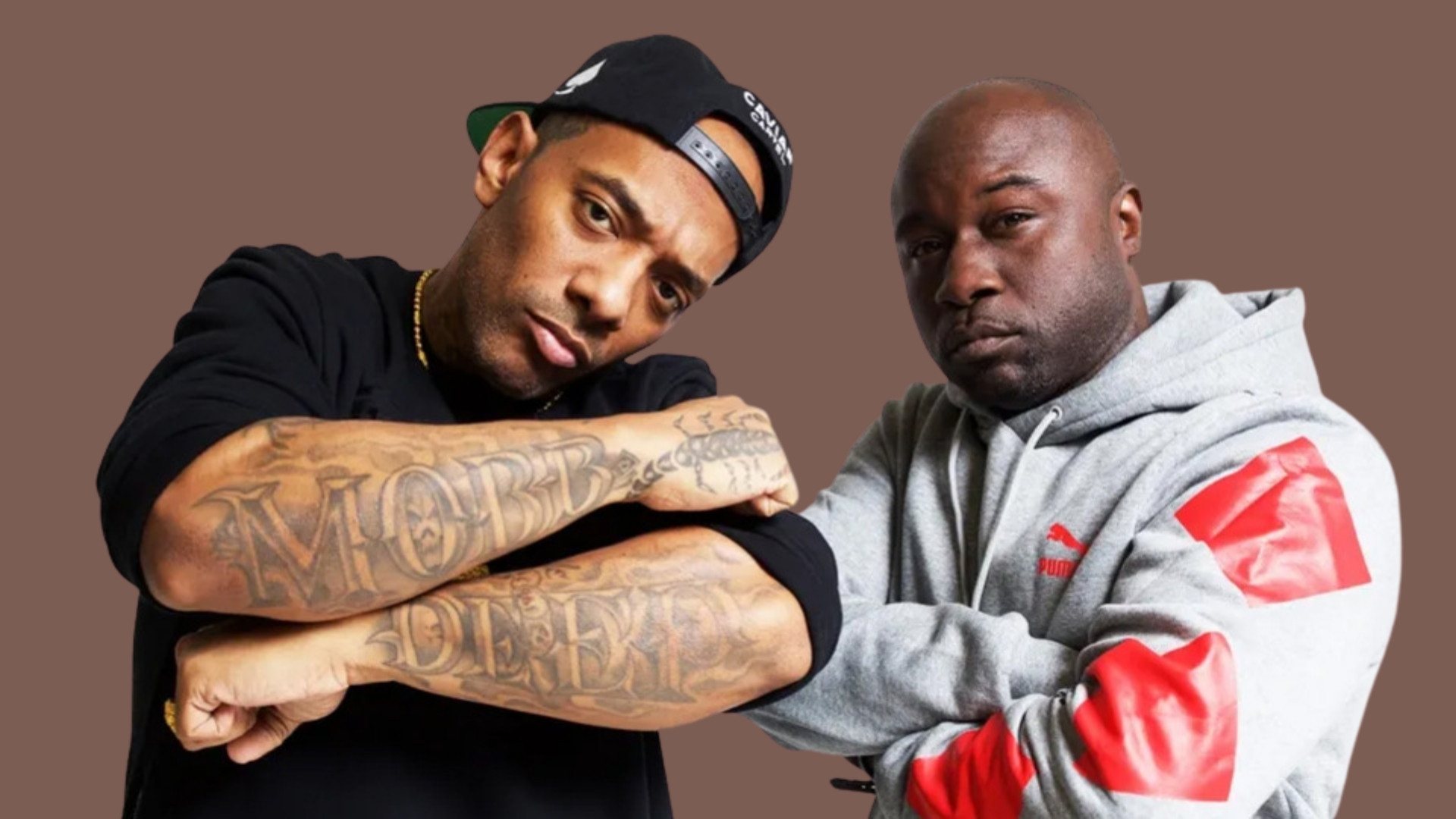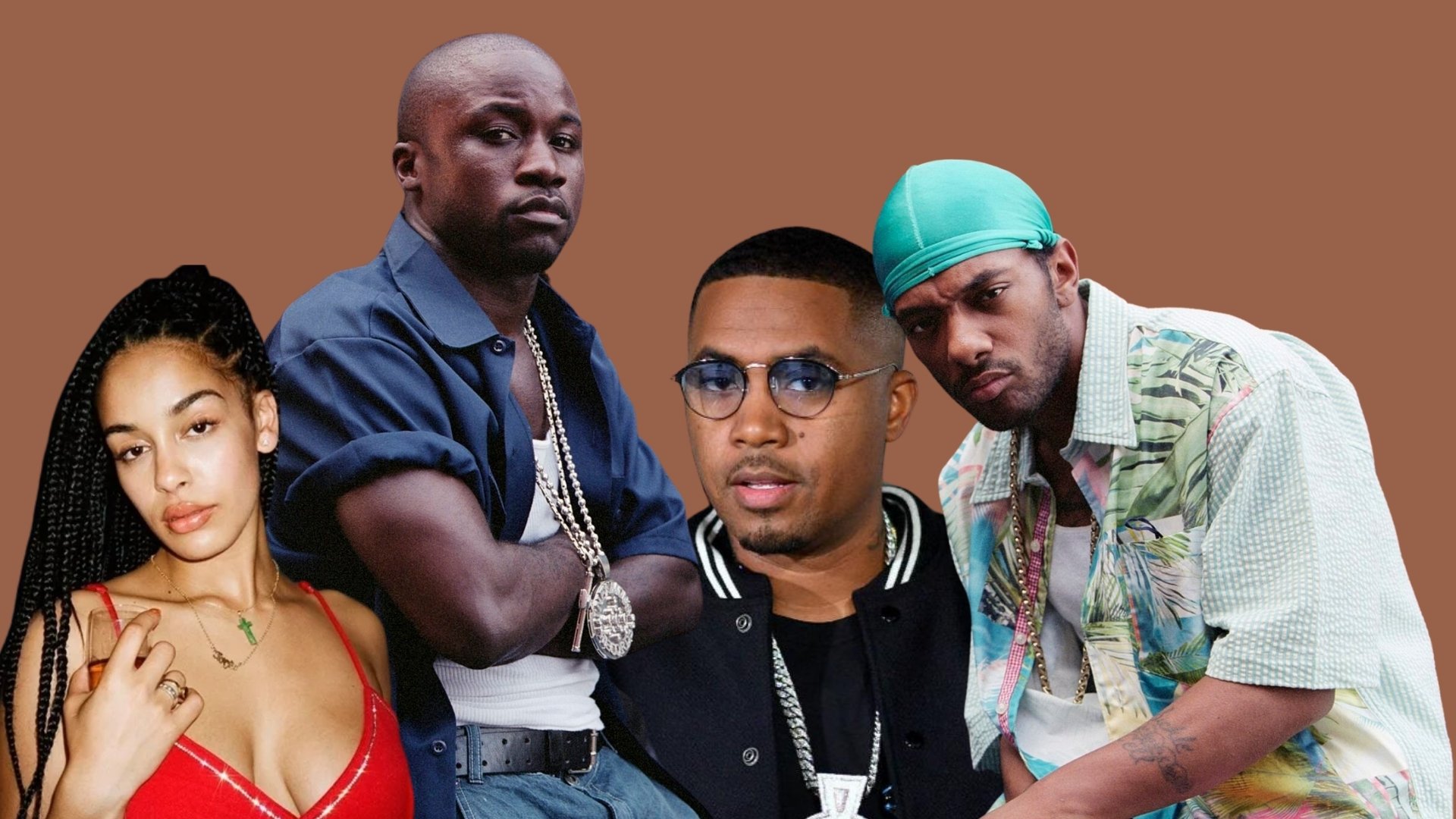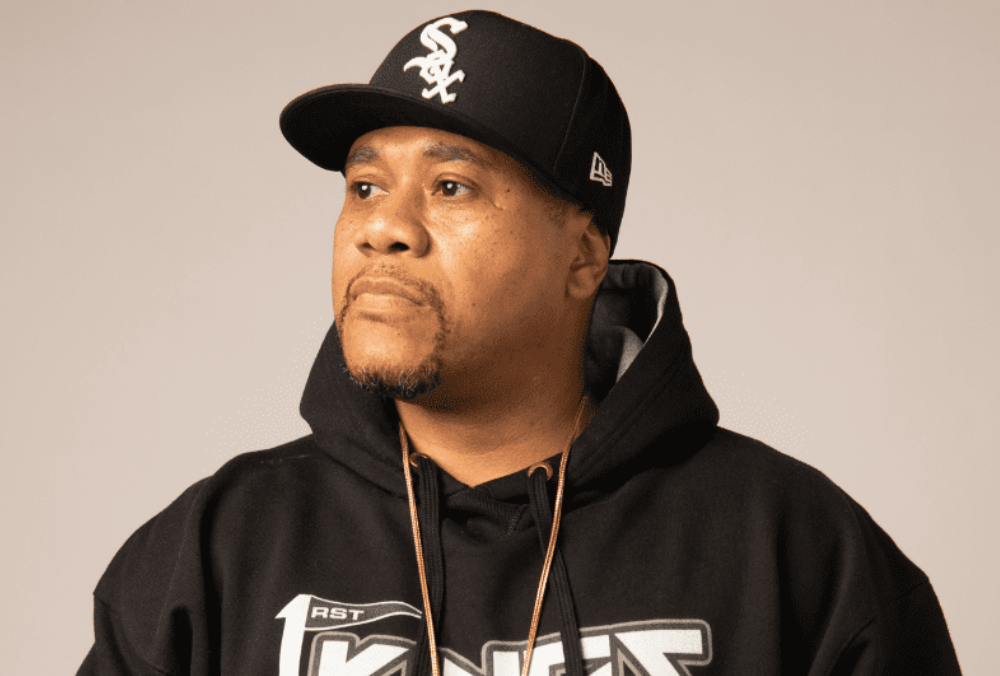‘Once the screaming 13-year-old girls aren’t necessarily there anymore, it’s like, are you a musician or are you not? Can you stack up or can’t you?’
Cody Simpson strolls into Brooklyn’s Neighbors Cafe on a chilly February afternoon. While his sun-dyed medium-length locks have remained more or less the same since his days of having his own Toys R Us doll, it doesn’t take long to realize just how much the now-six-foot-tall, 23-year-old Australian has changed since his teen-pop stardom first hit.
And the change isn’t just evident in his astronomical height difference. There’s a mature confidence in Simpson now. You can see it when he greets the baristas like a part-time New Yorker, when he takes his time with questions — usually opting for the more philosophical answer — and when he folds his hands while speaking, revealing numerous rings on each and a large anchor tattoo on his left. In appearance and demeanor, Simpson is clearly an adult now.
But the “adult musician” label he’s finally earned was a bit harder to obtain, he explains. He just didn’t need the screaming teenage girls around all the time to do it. “Once all the hype is gone and once the screaming 13-year-old girls aren’t necessarily there anymore, it’s like, are you a musician or are you not? Can you stack up or can’t you? That’s what I realized when I was 18 when leaving Atlantic Records],” Simpson says. “I knew I needed to develop my craft more if I wanted to exist in the music industry.”
Before our window-side coffee chat at Neighbors about his musical journey, Simpson finished record shopping with friends at New York’s Village Music World. He boasts his finds: Judy Garland, Frank Sinatra, The Rolling Stones, and a few other names his father, Brad Simpson, put him on while he was growing up. As much as Simpson credits his father for his music taste, he establishes that his alter ego has a fairly unconventional father figure in his life: King Neptune, the Roman god of the sea, inspired his recent penname and poetry collection Prince Neptune: Poetry and Prose, due out April 7. “I was assuming the role of King Neptune with the book],” Simpson says. “And for me, as a surfer and a swimmer, just being a descendant of the divine ruler of the seas was the kind of place I’d be writing from.”
Simpson’s poetry venture shouldn’t come as a shock to fans. While poetry first captured his attention in grade school, it reentered his life when he left Atlantic Records in 2014 and later created his own label at 18, following over three years of unrelenting world-tour schedules and promoting music he seldomly related to. Now entering the new decade, Simpson is halfway through his next musical project and finally closing off a transitory period in his life. “Now with my platform, I just want to inspire other people to do the same thing,” Simpson says. “To not take the conventional road if you don’t want to. To be OK kind of living a little more dangerously.”
But in 2008, the then 11-year-old Australian was on his way to that high-profile, screaming-girl status he eventually left behind. He was a talented musician, he submitted his poetry into school contests and, above all, a gifted swimmer, who still holds 10 or so records at All Saints Anglican School in the Gold Coast. Simpson would wake up at 5 a.m. most days to train, and his hometown peers were convinced he would go on to become a future olympian, he says. “The discipline that swimming taught me was unparalleled. I adapted to structure. I had to become that way with touring later on]. And just the idea of giving your all to something, I never once since thought that you could get away with not doing it.”
The story of Simpson’s musical discovery has been told many times before: He recalls playing the guitar and covering Jason Mraz’s “I’m Yours” in November of 2008 at a school show, when a friend’s parent started filming. Like any tween seeing themselves on camera, Simpson posted the footage on YouTube shortly after. From there, he would have his parents film him singing covers every other month, as he regularly posted demos on his MySpace page. “That’s where I got my first message from a music producer. He was like, ‘I see a lot of potential here.’ It was some unknown, inactive page with this photo of a phoenix and this guy’s name.”
The ‘guy,’ Shawn Campbell, asked Simpson to join him in the U.S. and visit music executives in New York City. It took a few months before Simpson and his family seriously considered it an option, or even believed it. “My parents were 100% like, ‘This is a pedophile, no doubt,’” Simpson now laughs. “At first, we kind of just dismissed it because we didn’t see it as anything that would be possible.”
But on Simpson’s 13th birthday, he and his father flew to New York City, where he spent the first day of his teens at Warner Music with a guitar by his side, visiting offices from 10 a.m. to 6 p.m. and singing for anyone willing to open their office doors. Roughly a year later, Simpson and his family made the decision to move to California after arranging a deal. “I think my parents sacrificed a lot initially to be able to come here,” Simpson says. “They could see I was hell bent on doing it with or without them. Because of the common occurrence of kids in the industry going haywire eventually, because of the lack of family support around them, they wanted to be there.”
In the Atlantic Records studios at 14, Simpson was the youngest artist at the label, surrounded by industry regulars on a daily basis: Bruno Mars, Paramore, Wiz Khalifa. “I remember vividly, my mom came over to the studio and the hallway reeked of weed and there was Wiz recording in the room next door,” Simpson says laughing. “My mom was just like, ‘What the hell did I get my son into?’”
After that, Simpson’s rise was meteoric. He accomplished his musical dreams just a few years in — creating a top-10 album on the Billboard 200 with Surfers Paradise in 2013, taking part in seven tours and soon enough, having an 2013 MTV EMA in his back pocket for “Best Australia Act.” But Simpson admits, as much as he loved the experience at such a young age, he didn’t develop enough of a musical identity yet to jump into it all. He was surrounded by writers who did most of the studio work for him, and wasn’t yet capable of having much of a say in the music’s direction.
“At that point, I don’t think I really developed my identity enough as an artist to have any kind of real say in what was going on,” he explains. And I think that’s the case with many artists who get thrust into fame before they’re really developed.”
And when touring the world, he became less and less excited by it all. He eventually visited psychiatrist Dr. Daniel Amen, recently featured in Justin Bieber’s “Seasons” documentary series, who explained to him what he was feeling at the time. “You get so much dopamine] so young — and once you become even my age now, it’s like, I sometimes feel a bit jaded about life.”
While he’s still proud of his childhood accomplishments, Simpson remembers when the feeling of the music started to slip from him. At 11 years old, he was singing in the style of his heroes like Jack Johnson and Elvis, but around 15, he noticed his own music wasn’t giving him that same feeling: “Fast forward four or five years, I’m on tour with Justin Bieber singing all these songs that I didn’t write. I looked at myself in the mirror one day and was like, ‘Is this really, truly what I want to do with my life?’”
So, at age 18, Simpson walked away from his deal at Atlantic. He was ready for creative control this time. “I kind of felt like it was going in a way where I wanted to hide from the things I was doing as I got older,” he says. “I wanted to be] at least proud of what I was doing. Like, ‘Am I going to want to sing this in 10 years?”
His entrance into adulthood came with the formation of his independent label, Coast House Records in 2015. And his first steps into a more authentic acoustic sound came with JBXCS, Simpson’s eventually cancelled joint project with world-tour costar Bieber. Lead single “Home To Mama” earned the singer new fans as he played a sultry guitar riff over Bieber’s vocals, but the full project never came to fruition. Still, Bieber was one of the first people to tell Simpson he belonged as a guitarist. “He said ‘You’re really f–king good at this,’” Simpson says. “And I was like, ‘This is actually what I really enjoy doing.’ He told me to do more of it. Multiple people kept saying that, and it just validated what I already knew.”
Their joint project can now only be heard in scattered leaks, mainly due to Bieber and Simpson’s ventures into different sounds in 2014/15. Around the time, Bieber entered his Purpose era with the Skrillex-and-Diplo-fueled “Where Are Ü Now,” but Simpson still found guidance in Bieber’s words. The two former teenage heartthrobs, along with Cody’s now-girlfriend Miley Cyrus, made up something of a social circle at the time; young people who were rediscovering themselves, or already had, following years of childhood fame. Bieber and Cyrus gave Simpson advice when he needed it, as they were a few years older, and mostly offered the Australian a much-needed escape from his journey.
“That was the kinship around it,” he explains. “And I think that’s why we all gravitate towards each other, at least at that time. I was a couple of years younger than they were, but kind of going through it at the same time. And we all used to get together to go out and talk about it or not talk about it, sometimes] trying to forget about it.”
As Bieber gave Simpson his seal of approval, Simpson found co-signs in other places, too. He recalls a day he ran into John Mayer at SOHO House in West Hollywood, when he interrupted Mayer’s date to get a quick hello in. “He said, ‘I just heard that thing you put out with Bieber, you’re really playing now.’ That was amazing.”
Simpson found his musical worlds colliding. Bieber, who Simpson was compared to as a fresh-faced pop star and Mayer, who Simpson idolized as he worked toward independence, both applauded his new journey. And from there, came Free.
Simpson put out the project — his first-ever independent record — in 2015, following the release of lead single “Flower” earlier in the year, which featured cover art doodled by Cyrus. When Simpson heard his dad’s reaction to the track, he knew leaving his label was the right decision. “My dad called me the morning I put it out and said, ‘This is my favorite thing you’ve ever done.’”
Grammy-nominated producer Cisco Alder (Shwazye, The Internet) worked with Simpson on the project and says Simpson “washed up on his shore” in Malibu when they first recorded “Flower.” He had no preconceived notions of the teenager looking for independence, seeing him instead as an “insanely talented human.” “He was well beyond his years,” Alder says. “He had already lived a career in most normal sort of artist years. And I think strangely enough, he had never lived his personal truth. He fit the part for a lot of people… But I think, at the end of the day, when I met him it was about finding his truth and creating his career. Not the career before that.”
With “Free,” and with John Mayer offering some assistance as a soundboard for the project, Simpson started noticing a new crowd attending his shows and paying attention to his music: dudes and college girls. (The latter, he jokes, was quite flattering.)
It didn’t quite match the success of Simpson’s previous pop work, peaking at No. 128 on the Billboard 200, but that wasn’t what Simpson was after. In fact, it served as a “pivot” in his career, marking his first chapter as a storyteller and touching on topics that — for the first time — really resonated with Simpson: “Wilderness” showed Simpson advocating for the planet. “Livin’ Easy” was Simpson’s first self-written easy-living anthem. And “Happy Little Hippie” was a proper folky entrance into love songs, which actually earned its name from Cyrus’ Happy Hippie Foundation.
“I think he’s found himself and everyday he’s learning to accept both his talents but also his individual weirdness and what makes him a little special, which is his passion for the earth, his passion for this ‘50s nostalgic James Dean s–t,” Alder says. “Not everyone’s into that s–t at that age. I think he’s embracing it. I think every day it leaks out a little more and becomes more real.”
Simpson was finally, and truly, free under Coast House. He says he’s since had to remove himself from scenarios where he was asked to create ‘commercialized’ music in recent years, but he’s now doing it his way again. And he’s finally learning to balance, too.
While signed to a label and on the pop-star circuit, Simpson rarely hit the pool. But now as an independent artist, he’s been rekindling his aquatic aspirations and is working out with friends at the University of Southern California. He didn’t have the time to focus on advocacy while at the label, either. But now Simpson serves as the United Nations’ first Ocean Advocate, raising awareness of the oceans’ role on the planet through speaking engagements and written pieces.
He also had little time to write, something which was essentially done for him as a teenager. But now he says Prince Neptune is his way of writing in a non-traditional sense. “I don’t write with a pentameter or rhyme scheme,” Simpson says of the poetry collection. “I write in a more freeform stream of consciousness. Songs have a lot more structure around them typically. Everything I couldn’t structure into a song, I would end up just putting it into poetry form.”
For Simpson, Neptune has become something of an alter ego, and one he’s excited to introduce to fans. “There are topics of Greek and Roman mythology throughout the book — I talk about Apollo, I talk about Neptune,” he explains. “The origin was that I was assuming the role of the son of King Neptune. And for me as a surfer and a swimmer, just being a descendant of whatever that divine ruler of the Seas was, that was the type of place mentally I’d be writing from.”
Still, even with a poetry book hitting shelves shortly, Simpson is laser-focused on his new music. In November, he released single “Golden Thing,” an acoustic, shuffling love song (“Cali queen, radiant hand… I’m shot, It’s a golden thing she’s got”) he wrote and performed for Cyrus by her bedside as she recovered from surgery. And, after she jokingly pressured him to put it out into the world (or else she would’ve herself), Simpson was thankful to see fans responded favorably to his quick drop.
Though Simpson is reticent to discuss much on the record about his relationship with Cyrus, who he began dating in October, he shares he was glad Cyrus pushed him to release “Golden Thing.” “I think it was a one-of-a-kind thing,” Simpson says. “It was really spontaneous. I wrote and recorded the song in a couple hours and it was up on Spotify a couple weeks later. It showed me that that’s something that could work again if I wanted to release things like that again.”
Without having a date in mind, and in an effort to jokingly not make any false promises, Simpson says he’s about halfway through his upcoming music project — and he wants it to serve as a companion to his new alias as Prince Neptune: “I think it kind of holds hands with the poetry book a little bit. And that’s why I’m excited it’s coming before another musical project.”
Simpson’s journey to independence and his newfound ability to cross over mediums has been a long time coming. He laughs that he has his hands full right now and he isn’t necessarily banking on any of his new ventures being successes. But the Australian singer-songwriter has learned how to be confident enough to give them a try.
“If at the end of my life I’ve had 200 failures and four major successes, that’s amazing,” Simpson says about his new professional paths. “I’m grateful to be in the position where I can be a person that has a channel for my creative output. I’m grateful people want to listen or read. That’s often the hardest part and that’s something I’ve been able to accomplish.”



